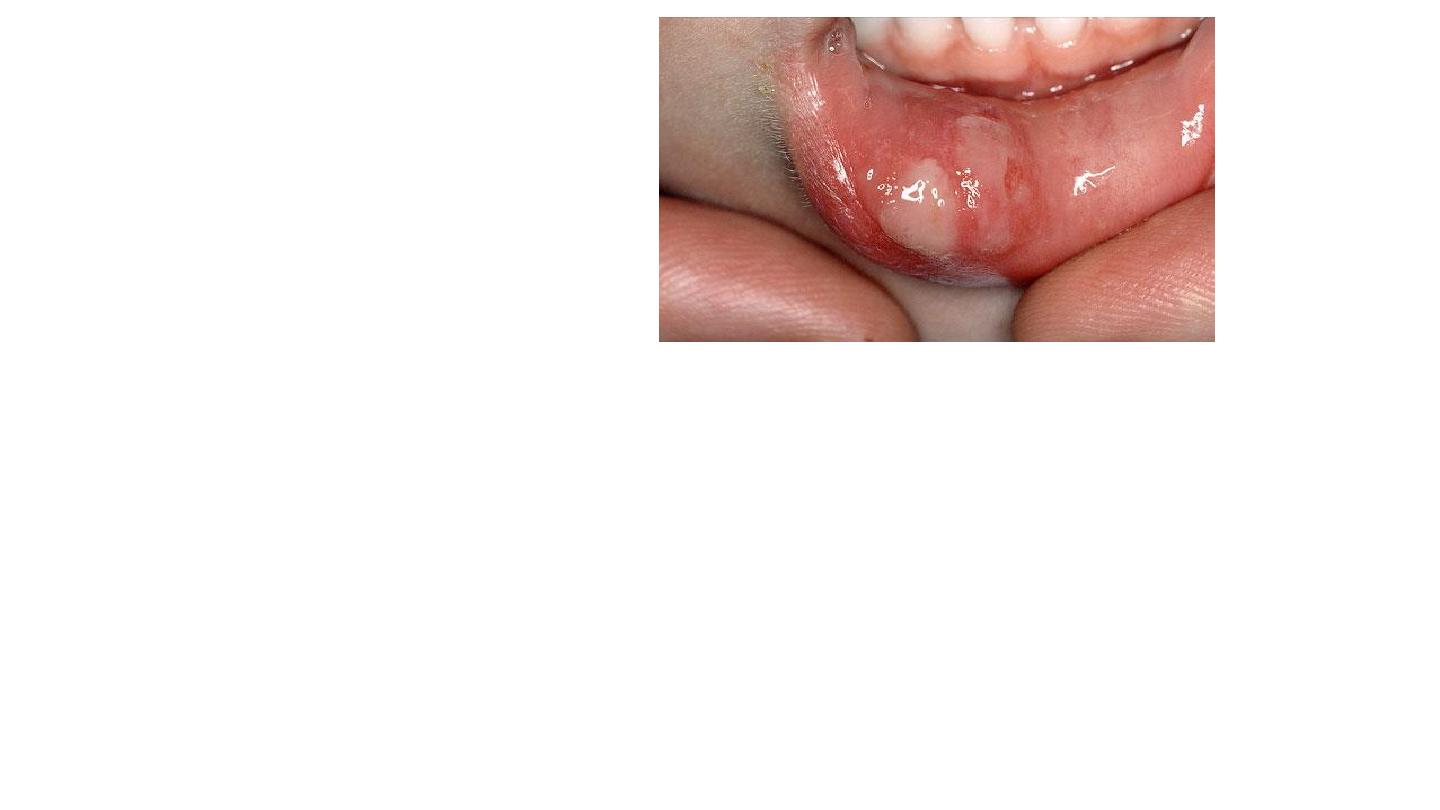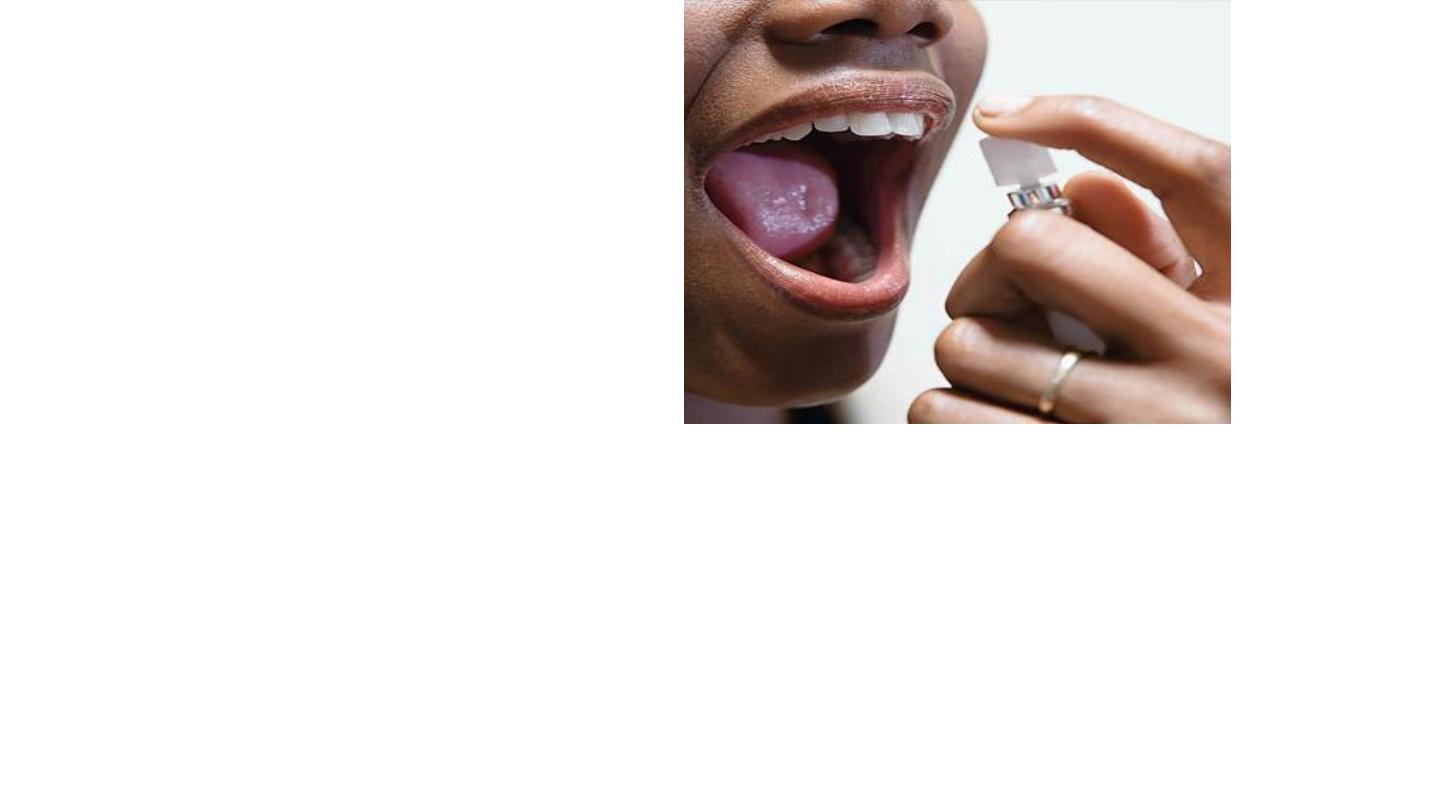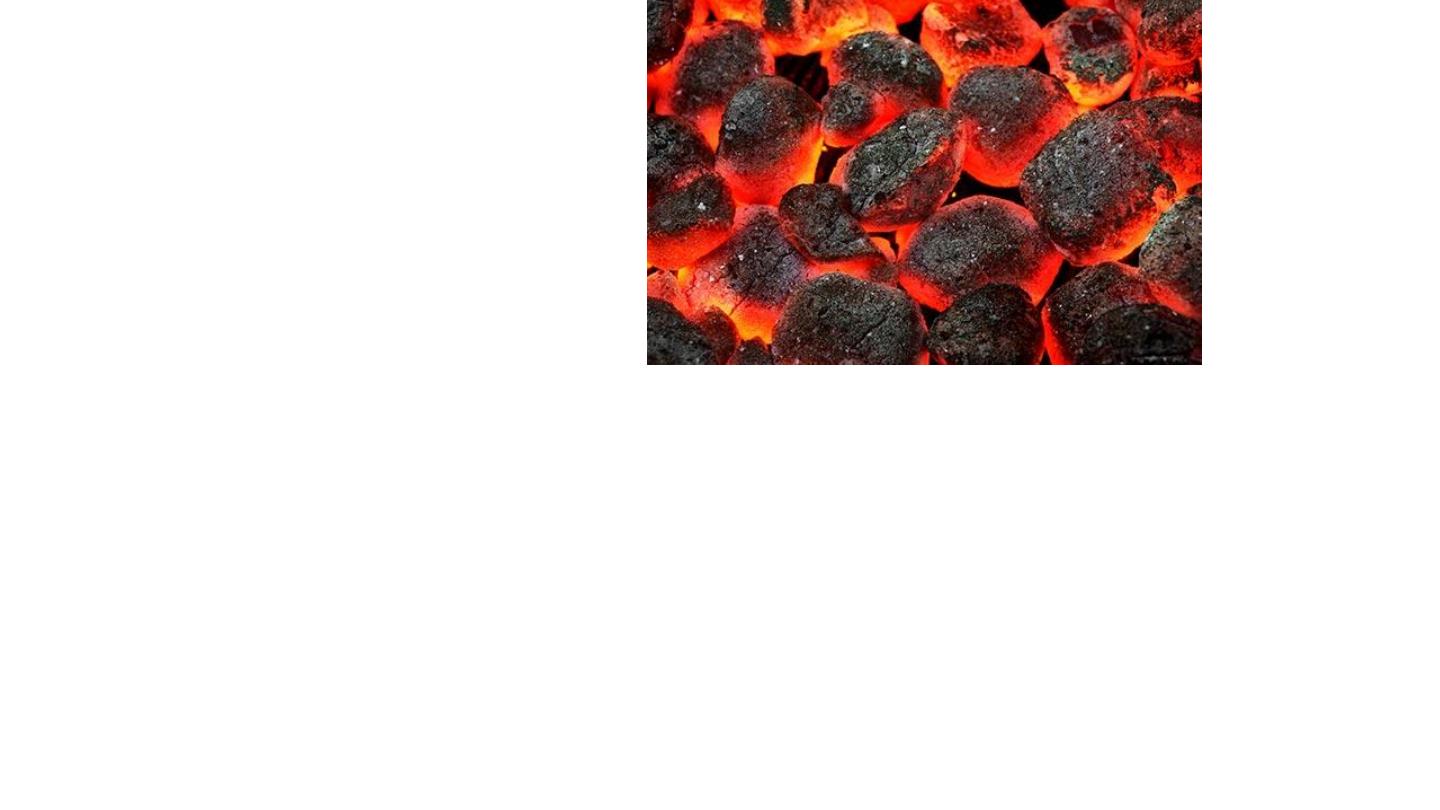
Mouth Diseases
Dr.Nada Khalil

Thrush
Caused by candida yeast, thrush is most common in
older adults or babies. But a weakened immune system,
antibiotics, diabetes, or certain medications -- such as
inhaled corticosteroids -- can give candida a chance to
grow wild. Wiping away the patches will cause
soreness.

Black Hairy
Tongue
This painless condition occurs when the little bumps on
your tongue grow long and trap bacteria that live in your
mouth -- making the tongue look black and hairy. Causes
can include
antibiotic
use,
poor oral
hygiene,
smoking
,
drinking a lot of tea or coffee
, and
not producing enough
saliva
. Brushing the tongue and using a tongue scraper is
usually all you need to treat it, though sometimes
medication is necessary.

Canker Sores
No one knows what causes these small, painful blisters inside
your mouth. Triggers include hypersensitivity, infection,
hormones, stress, and not getting enough of some vitamins.
Also called aphthous ulcers, canker sores can show up on the
tongue, cheek, even your gums. They usually last a week or
two.
Persistent, severe canker sores can be treated with numbing
creams, prescription drugs, or dental lasers.

Leukoplakia
Leukoplakia is a reaction to an irritant, like rough teeth,
badly fitting dentures, smoking, and smokeless tobacco. It
can show up as white patches or plaques in the mouth, is
usually painless, and can't be scraped off. Leukoplakia can
also be a precancerous condition.

Lichen Planus
• lacy, white patches or red shiny
bumps on the inside of the
cheeks or tongue could be
lichen planus.
• No one knows what causes it.
• Generally: mild lichen planus
doesn't need any treatment.
• If it causes pain or ulcers, it can
be treated with oral and topical
medication.
• may increase the risk for oral
cancer. Lichen planus can also
affect skin, scalp, nails, and
genitals

Geographic
Tongue
• When parts of your tongue are missing some of their
small bumps, you end up with raised and lowered spots,
giving your tongue a map-like appearance.
• The spots can change location, pattern, and size within
minutes to hours. Geographic tongue is harmless and
can come and go. It usually doesn't need any treatment.
If there's pain, over-the-counter pain relievers and anti-
inflammatory medications can help.

Oral Cancer
. the human
papillomavirus, or
HPV.
A mouth sore that doesn't go away.
Unexplained numbness in the face,
mouth, or neck. Problems
chewing, speaking or swallowing.
These are a few symptoms of oral
cancer.
Causes can include smoking
cigarettes and using smokeless
tobacco, drinking heavily,
overexposure to the sun, and a
family history of cancer.

Gum Disease
When periodontal (gum) disease develops, bacteria in
plaque accumulate along the gum line.
Gingivitis is the first stage of gum disease.
Symptoms include red, puffy, and bleeding gums. Proper
oral hygiene can help prevent periodontal disease.
Smoking, poor diet, and stress can make it worse.

Periodontitis
he next stage of gum
disease is periodontitis, or
gum infection.
Increased inflammation
causes the gums to recede,
forming pockets between
the teeth and gums. These
pockets trap tartar,
plaque, and food debris
that eventually lead to
infection and abscesses.
Advanced gum disease damages
the bone that supports teeth and
is one of the leading causes of
tooth loss in adults. See your
dentist to treat receding gum

Bad Breath
Unbrushed teeth have food
particles around them that
promote bacteria and
cause bad breath.
Persistent bad breath or a
bad taste in your mouth
may be from continuous
breathing through your
mouth, dry mouth, tooth
decay, a sign of gum
disease, or even diabetes
.
Treated by brushing your teeth
and tongue, flossing and rinsing
with an antiseptic mouthwash
daily, drinking water, and
avoiding food triggers. See your
dentist if bad breath persists.

Bright Red Tongue
A strawberry-red tongue could be an early sign of
Kawasaki disease
, a rare, serious illness that inflames
blood vessels all over the body, most often in
children. It’s also a symptom of
scarlet fever.
If your
red tongue is also smooth and you have pain in your
mouth, it might be a sign that your body doesn’t have
enough
vitamin B3
.

Burning Feeling
Some health problems,
like dry mouth,
infections
,
acid reflux
, and
diabetes
may cause it, too.
For some people, acidic
foods like pineapple as
well as toothpaste,
mouthwash, candy, or gum
also make their mouth
burn
.
If your tongue feels like you
scalded it with hot coffee and tastes
metallic or bitter, you may have
burning mouth syndrome. It might
mean a problem with the nerves in
your tongue.

Smooth Tongue
A tongue without any small
bumps on the top may look
glossy red.
Causes
• iron, folic acid, or B
vitamins.
• Infections, celiac disease,
• some medications
.

Soreness
Your tongue has lots of nerve
endings, so it can really hurt
if you bite or injure it.
Canker sores, lichen planus
(shown here), thrush, and
geographic tongue can cause
pain. Some medications and
infections can make your
tongue sore, too
..
Sometimes pain in your tongue can
be a sign of cancer, especially if
you also have a lump or red or
white patches. Bring those
problems up with your doctor or
dentist

Fissured Tongue
Deep grooves can form
on your tongue as you
age. They also are linked
to Down syndrome,
psoriasis, and Sjögren's
syndrome.
They’re harmless, but you should
gently brush your tongue to clear
food and bacteria. The grooves
might get better when your doctor
treats the condition that’s causing
them, if there is one
.

THANK YOU
